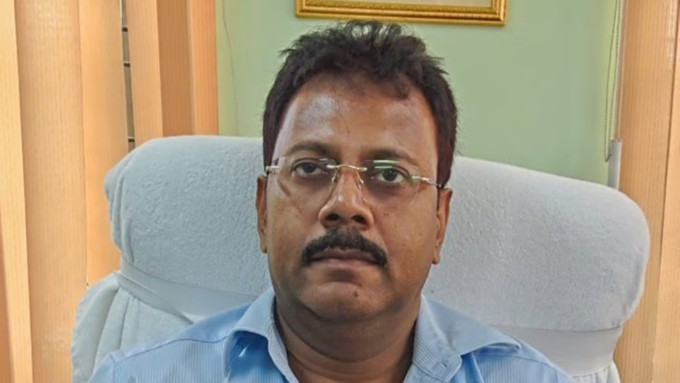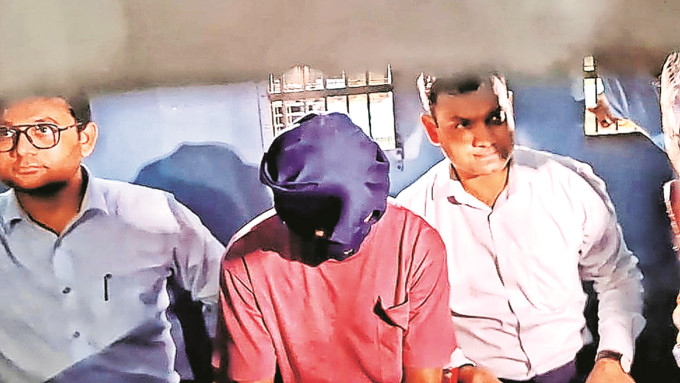Neurologists explain the accuracy of polygraph test that RG Kar rape-murder prime accused underwent during CBI investigation
Sanjay Roy, the primary suspect in the rape and murder of a trainee woman doctor at R.G. Kar Medical College in Kolkata, underwent a polygraph test on Sunday at Kolkata’s Presidency Central Jail. The Central Bureau of Investigation (CBI) administered the test to determine if Roy’s statements regarding the case were truthful and also to shed light on whether it was a solitary act or a gang rape.
Earlier, Sandip Ghosh, the former principal of R.G. Kar Medical College and Hospitals, also underwent a polygraph test as part of the ongoing investigation. The CBI is utilising these tests to gather crucial evidence and piece together the events surrounding the horrific crime.

We asked neurologists to explain how exactly a polygraph test works and what its accuracy level is.
 The Central Bureau of Investigation (CBI) has named Sandip Ghosh, former principal of RG Kar Medical College and Hospital, in the FIR. (Express Photos)
The Central Bureau of Investigation (CBI) has named Sandip Ghosh, former principal of RG Kar Medical College and Hospital, in the FIR. (Express Photos)
How do polygraph tests work?
According to Dr PN Renjen, Senior Consultant-Neurology, Indraprastha Apollo Hospitals, polygraph tests, commonly known as lie detector tests, work by measuring physiological responses associated with stress or anxiety, which are presumed to occur when a person lies.
He explained that the device typically records several indicators simultaneously, including blood pressure, pulse rate, respiration, and skin conductivity (galvanic skin response).
Neurologist Dr Bhupesh Kumar added that in some cases, they also take into account your pupil rate. “The test starts by setting a proper baseline by asking the person factual questions. Things like their name, where they live, the President of the country. Facts that they cannot lie about. A drift from this baseline in the following questions may mean that the answer might be a lie,” he explained.
Dr Renjen added that the underlying principle is that deceptive answers will produce measurable changes in the physiological parameters used to measure the responses.
Is it possible to mislead or fool a polygraph test?
Dr Renjen said it is indeed possible to mislead or fool a polygraph test, which is one of the primary criticisms of its reliability. According to him, various countermeasures can be employed to alter physiological responses and potentially produce false negative results (indicating truthfulness when lying).
“These techniques may include controlled breathing, muscle tensing, or mental arithmetic to create artificial stress during control questions. Some individuals may use pharmacological agents to suppress physiological responses,” he explained.
 Kolkata rape accused Sanjay Roy (file)
Kolkata rape accused Sanjay Roy (file)
Individuals with certain personality traits or those trained in deception techniques may be more adept at manipulating their responses, according to Dr Renjen. The possibility of countermeasures significantly contributes to the skepticism surrounding polygraph reliability in both scientific and legal communities.
Although Dr Kumar says a test can be misled, there have been no cases recorded where the person has successfully done so, he added. “You need to have a lot of practice to be able to fool it. It’s a limited source.”
What is the accuracy level of a polygraph test?
The accuracy level of polygraph tests is a subject of ongoing debate and research. While proponents claim high accuracy rates, often citing figures between 80% and 90%, Dr Kumar pointed out many scientific studies suggest much lower reliability.
“We have to take it with a bit of salt. If this were a medicine, we could point out its exact accuracy but since it has nuances, the accuracy changes with every person,” he explained.
The National Research Council of the United States of America (USA) conducted a comprehensive review in 2003 and concluded that polygraph accuracy for screening purposes was “little better than could be achieved by the flip of a coin.”
For specific-incident testing, accuracy may be higher but still far from perfect. Factors affecting accuracy include the skill of the examiner, the test format used, and individual differences in physiological responses. Due to concerns about reliability, polygraph evidence is generally not admissible in U.S. courts, and many scientists argue that the technique lacks solid scientific validity.
📣 For more lifestyle news, click here to join our WhatsApp Channel and also follow us on Instagram
Disclaimer: The copyright of this article belongs to the original author. Reposting this article is solely for the purpose of information dissemination and does not constitute any investment advice. If there is any infringement, please contact us immediately. We will make corrections or deletions as necessary. Thank you.

